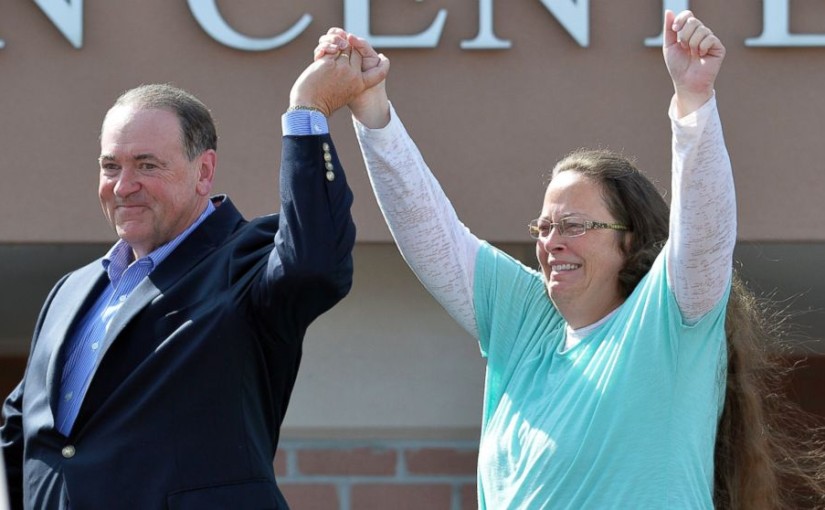I saw this gem by a guy calling himself Saul of Hearts floating around Facebook and needed a spot to rant about it, so it’s time to get this old blog rolling again.
What are some of the phrases that come to mind when you think about work? Maybe you think about a “hard-working man/woman,” or having a “good work ethic.”
If you’re having a bad day, you might think about the “daily grind” or the “9 to 5 life.” Some days you’ll even think about “escaping from the cubicle.”
But chances are you associate words like “idling” and “leisure” as slightly less admirable. Fine in moderation, of course — but too much free time can’t be good for anyone. Right?
In America these days, it’s hard to find someone who thinks that working less might actually be a virtue.
And yet, I’m convinced that not only do we as a society work too hard, but we value work too much. Our insistence that work is inherently virtuous doesn’t stand up to scrutiny.
Here’s the first red flag, and what makes me think he’s gonna be a liberal. First he suggests that it’s rare to find anyone who thinks working less is a virtue – well, of course it is, because what he said was “virtue,” which means “a behavior showing high moral standards.” Working less is not an absolutely moral thing, in either direction. For instance, if I work sixty hours a week, and I reduce it to forty, then its morality depends on the reason and means – am I requesting fewer hours because I want to spend more time with my wife and kids? Or am I bailing out on my boss when I promised to work overtime because I just don’t feel like it today? It’s a nonsense statement.
Next, he suggests that there is a cultural insistence that “work is inherently virtuous.” I wish that this were the case! Maybe people would be less reluctant to work at anything, were it so. But let’s assume he’s right: again, I think there’s context to be understood here – sentiments like these: being productive is virtuous. Putting in a hard day’s work is good for the soul. When you work, work hard. I don’t think many would say “I’m only working 40 hours? If only I could work sixty, I’d be a better human being!”
In a recent article on LA’s car culture, Stephen Bondor cites the fascinating statistic that “There are more artists, writers, filmmakers, actors, dancers and musicians living and working in Los Angeles than any other city at any time in the history of civilization”.
That’s remarkable. But what are these people doing with their time? Where’s the creative Renaissance that such a large population could surely bring to life?
Well a lot of them are attending liberal arts college, singing crappy covers in coffee shops, and generally being derivative and unremarkable. That’s because it’s now possible to brand yourself a musician without being able to earn a living as such – in fact, the statement he quoted there, in the article he quoted it from, is a recruiting bit from USC Stevens. But that aside, what do you call Hollywood of the last hundred years if not an instrument of immense creative power? (The recent trend of endless sequelmaking notwithstanding.)
For most of them, as much $8,000/yr of their income (and a substantial portion of their work week) is going toward owning a car so they can get to and from work.
Their creative projects are crammed into evenings and weekends, and funded by whatever money they have left after paying down student loans and car insurance.
In a rather convincing breakdown, Bondor demonstrates how an aspiring scriptwriter, simply by getting rid of his car, could reduce his day job in half and spend the remaining time “pursuing his passion”. He could be a professional screenwriter in half the time.
And yet … “pursuing his passion” has an unsavory ring to it, doesn’t it? It sounds kind of … selfish. Shouldn’t he be “doing his part” to “contribute to society”?
Bullshit. Passions are what change the world.
Blah blah cars are bad. If the guy has a job that he can’t walk or bike or take public transport to, why is he surprised that a car is required? It’s not like this is a surprise people spring on you after you get hired. If it’s important to you that you not need a car to get to work, then you can look for any number of jobs that fall into that category – and like any other limiting factor, accept that it means a smaller number of options to choose from.
But that’s just some distracting little aside designed to remind you how mean life is without having you think to hard before he drops his big point: society thinks passion is selfish, but passion is what changes the world!
First off, society doesn’t think passion is selfish. Let’s skip over the purely practical applications and jump straight to creative passions, because I have a feeling that’s where this guy is going: Elton John has a passion for making music. Pat Rothfuss has a passion for telling stories. Steven Spielberg has a passion for making movies. Is the first thing you think when these names come up “selfish?” No, it’s probably something more like “great,” or “successful.” Society respects these people, not just for their work, but their success. You can probably name any number of smaller names who write books you like, sing songs you love, or otherwise make art you admire – do you think of these people as selfish for their art?
Now think of who you DO think of as selfish for pursuing a passion: the guy who quit his job and made his wife find a second job so he could stay home and paint terrible watercolors. The girl who’s 45 and living with her parents because she can’t stand to get a job that would hamper her ability to sing at local karaoke bars. These people have passions, but they pursue them in unrealistic ways that cause others to suffer: THAT is the selfishness, not having the passion.
As Buckminster Fuller — the great scientist and unconventional thinker — once put it, “We should do away with the absolutely specious notion that everybody has to earn a living. It is a fact today that one in ten thousand of us can make a technological breakthrough capable of supporting all the rest.”
The implications of this statement are obvious: Having more of our human workers get replaced by machines is the best thing that could possibly happen to us.
And yet in all the time that’s passed since Fuller made that statement — and all the technological advances since then — we’ve clung stubbornly to a 40-hr workweek.
I propose that this is not only stupid, it’s immoral.
It’s immoral to ask people to work when there’s no work that needs to be done. It’s immoral to create unnecessary labor so people have “something to do”.
Ah, here’s the meat. Didn’t I tell you I had the feeling Saul was a liberal? Full blown socialist, it turns out. He’s right that the technology exists to replace a lot of workers with robots, but conveniently ignores the part where that puts a lot of people without ways to earn a living, to put food on the table and roof over their head. The solution, I’m sure he finds obvious, is to make the successful pay for the rest – a typical solution socialists somehow find completely obvious. The problem is, almost no one really believes this or goes along with it when given the chance.
Bill Whittle has a scenario he likes to present at colleges: “How many of you identify as socialists?” Lots of kids raise their hands. “Okay, how many of you have smartphones?” They all raise their hands again. “Okay, come up here and give me your phones.” They ask why he wants their phones. “Well, I figure that the pawn shop across the street will easily give us a hundred bucks per phone – you guys give me twenty phones, that’s two thousand dollars! Then we can go to a poor part of town and just start handing everyone twenty dollar bills – we could take care of a hundred people that way!”
He’s never had anyone offer a phone. Why? Because that’s stupid. They worked for money and paid for a phone (or maybe their parents did), and it’s theirs. Guess what? They’re not socialists. They’re capitalists. They just don’t realize it. Who do they want to be handing out cash? “The rich,” “the 1%,” and the others who already pay for nearly everything in this country. And that’s what Saul is doing with this article, just far more boldly: he suggests that the successful should give away all their money to pay for everyone else not to work. He never talks about the practicality of passions: if you quit your job to follow your passion, and that passion is useful and makes money, no one regards you as selfish. If you quit your job to sit at home, smoke weed, and play Xbox, and demand the rich (or your parents) pay for your lifestyle, then you’re being selfish.
There are already words for people who pay for others to pursue their passions: patrons, or venture capitalists. The key part here is that those people do it willingly, while Saul here would have you do it with a gun to your head. Turns out the word choices of “virtuous” and “immoral” give us a great look into this guy’s worldview – he actually believes that people creating jobs so people can earn a living, as opposed to simply giving them handouts, is morally wrong. That’s strong language. Theft is morally wrong. Murder is morally wrong. Job creation? Not even Barack Obama thinks that’s a bad thing.
This isn’t a brilliant view on the modern workplace. This is just radical liberalism in a different t-shirt.



